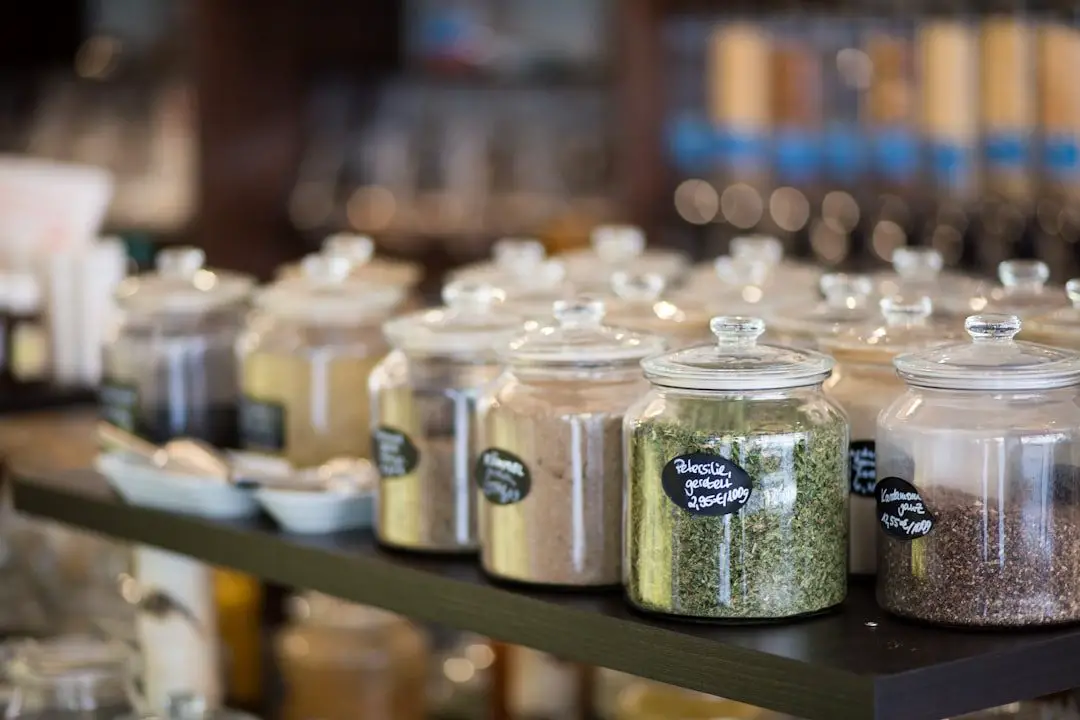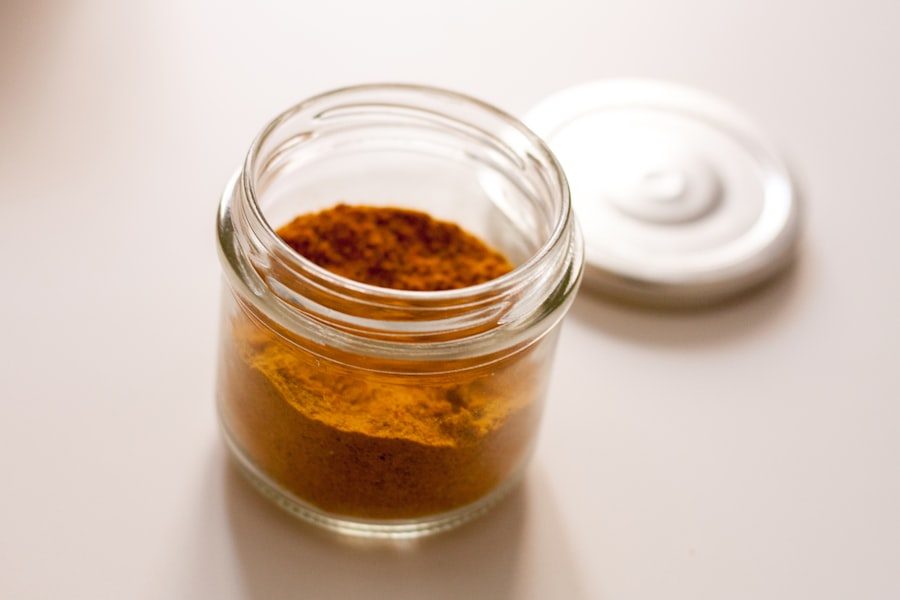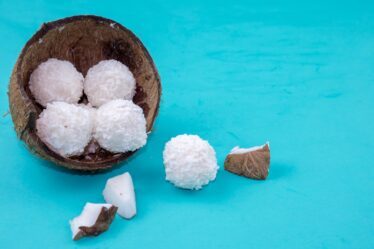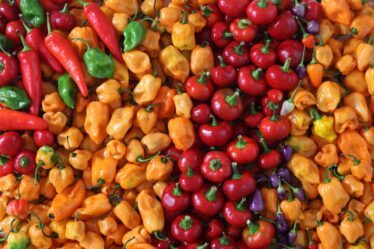
Ginger, scientifically known as Zingiber officinale, is a flowering plant that has been used for centuries in traditional medicine. It is native to Southeast Asia and has a long history of use in various cultures around the world. The use of ginger can be traced back to ancient times, where it was highly valued for its medicinal properties.
In traditional medicine, ginger was used to treat a wide range of ailments, including digestive issues, respiratory problems, and menstrual disorders. It was also used as a natural remedy for nausea and motion sickness. The ancient Greeks and Romans used ginger as a digestive aid, while the Chinese and Indians used it to treat colds and flu.
Dried ginger is made by drying the fresh ginger root, which concentrates its active compounds and enhances its flavor. It is commonly used as a spice in cooking and baking, but it also has numerous health benefits. Dried ginger contains a variety of bioactive compounds that contribute to its medicinal properties, including gingerols and shogaols.
Key Takeaways
- Dried ginger has been used for centuries for its medicinal properties.
- Gingerols and shogaols are the active compounds in dried ginger that provide its health benefits.
- Dried ginger has anti-inflammatory properties that can provide relief for arthritis and joint pain.
- Dried ginger can also aid in digestion and provide relief for nausea and indigestion.
- Dried ginger has been shown to have positive effects on heart health, respiratory health, immune system support, menstrual health, and brain health.
Gingerols and Shogaols: The Active Compounds in Dried Ginger
Gingerols and shogaols are the two main bioactive compounds found in dried ginger that are responsible for its health benefits. Gingerols are the major active compounds found in fresh ginger, while shogaols are formed when ginger is dried or cooked.
Gingerols have been shown to have anti-inflammatory, antioxidant, and analgesic properties. They help reduce inflammation in the body by inhibiting the production of pro-inflammatory cytokines. This can be beneficial for individuals suffering from chronic inflammatory conditions such as arthritis.
Shogaols, on the other hand, have been found to have potent anti-inflammatory and anti-cancer properties. They have been shown to inhibit the growth of cancer cells and induce apoptosis (cell death) in cancer cells. Shogaols also have antioxidant properties, which help protect the body against oxidative stress and damage.
Drying ginger enhances the concentration of gingerols and shogaols, making dried ginger a more potent source of these bioactive compounds. This is why dried ginger is often used in traditional medicine and natural remedies.
Anti-Inflammatory Properties of Dried Ginger: Relief for Arthritis and Joint Pain
Inflammation is a natural response of the immune system to injury or infection. However, chronic inflammation can lead to various health problems, including arthritis and joint pain. The anti-inflammatory properties of dried ginger can help reduce inflammation in the body and provide relief for individuals suffering from these conditions.
Studies have shown that gingerols and shogaols inhibit the production of pro-inflammatory cytokines, which are molecules that promote inflammation in the body. By reducing the production of these cytokines, dried ginger can help alleviate inflammation and reduce pain in individuals with arthritis and joint pain.
Furthermore, dried ginger has been found to inhibit the activity of enzymes that contribute to inflammation. This further supports its anti-inflammatory properties and makes it an effective natural remedy for reducing inflammation in the body.
Digestive Benefits of Dried Ginger: Relief for Nausea and Indigestion
| Benefit | Metric |
|---|---|
| Relief for Nausea | Studies have shown that ginger can reduce nausea and vomiting in various situations, including morning sickness, chemotherapy-induced nausea, and post-surgery nausea. |
| Indigestion Relief | Ginger has been found to speed up the emptying of the stomach, which can help relieve indigestion and related issues such as bloating and flatulence. |
| Anti-Inflammatory Properties | Ginger contains compounds that have anti-inflammatory effects, which can help reduce inflammation in the gut and improve digestion. |
| Antioxidant Properties | Ginger is rich in antioxidants, which can help protect the digestive system from damage caused by free radicals. |
| Improves Absorption of Nutrients | Ginger has been found to improve the absorption of nutrients in the digestive tract, which can help ensure that the body is getting the most out of the food it consumes. |
Digestive issues such as nausea and indigestion are common problems that many people experience. These issues can be caused by various factors, including poor diet, stress, and certain medical conditions. Dried ginger has long been used as a natural remedy for digestive problems due to its ability to improve digestion and relieve nausea.
Dried ginger contains compounds that stimulate the production of digestive enzymes, which help break down food and facilitate digestion. It also helps relax the muscles of the gastrointestinal tract, which can relieve symptoms of indigestion such as bloating and stomach discomfort.
In addition, dried ginger has been found to have antiemetic properties, meaning it can help reduce nausea and vomiting. It is often used as a natural remedy for morning sickness during pregnancy and can also be effective in relieving nausea caused by chemotherapy or motion sickness.
Dried Ginger and Heart Health: Lowering Cholesterol and Blood Pressure
Heart disease is a leading cause of death worldwide, and it is often associated with high cholesterol levels and high blood pressure. Dried ginger has been found to have beneficial effects on heart health by helping lower cholesterol and blood pressure.
High cholesterol levels can lead to the buildup of plaque in the arteries, which can increase the risk of heart disease. Studies have shown that dried ginger can help lower cholesterol levels by inhibiting the absorption of cholesterol in the intestines and increasing its excretion from the body.
Dried ginger has also been found to have hypotensive effects, meaning it can help lower blood pressure. It works by relaxing the blood vessels and improving blood flow, which can help reduce the risk of hypertension and other cardiovascular problems.
Dried Ginger for Respiratory Health: Relief for Asthma and Bronchitis

Respiratory issues such as asthma and bronchitis can cause significant discomfort and affect the quality of life. Dried ginger has been used for centuries as a natural remedy for respiratory problems due to its ability to improve respiratory health and relieve symptoms.
Asthma is a chronic inflammatory condition that affects the airways, causing wheezing, coughing, and shortness of breath. The anti-inflammatory properties of dried ginger can help reduce inflammation in the airways and improve breathing in individuals with asthma.
Bronchitis is an inflammation of the bronchial tubes, which carry air to and from the lungs. Dried ginger has been found to have expectorant properties, meaning it can help loosen mucus in the airways and promote its expulsion. This can provide relief for individuals with bronchitis by reducing coughing and improving breathing.
Dried Ginger and Immune System Support: Fighting Infections and Boosting Immunity
The immune system plays a crucial role in protecting the body against infections and diseases. Dried ginger has been found to have immune-boosting properties, making it an effective natural remedy for fighting infections and boosting immunity.
Dried ginger contains compounds that have antimicrobial properties, meaning they can help kill or inhibit the growth of bacteria, viruses, and fungi. This can help prevent infections and support the immune system in its fight against pathogens.
Furthermore, dried ginger has been found to stimulate the production of immune cells, such as T cells and natural killer cells, which play a key role in the body’s defense against infections. It also helps regulate the production of cytokines, which are molecules that coordinate the immune response.
Dried Ginger and Menstrual Health: Relief for Menstrual Cramps and PMS Symptoms
Many women experience menstrual issues such as menstrual cramps and premenstrual syndrome (PMS) symptoms. These issues can cause significant discomfort and affect daily activities. Dried ginger has been used as a natural remedy for menstrual problems due to its ability to relieve menstrual cramps and reduce PMS symptoms.
Menstrual cramps are caused by the contraction of the uterus during menstruation. Dried ginger has been found to have antispasmodic properties, meaning it can help relax the muscles of the uterus and reduce cramping.
PMS is a combination of physical and emotional symptoms that occur in the days leading up to menstruation. Dried ginger has been found to have mood-enhancing properties, which can help reduce symptoms such as irritability, anxiety, and depression.
Dried Ginger and Brain Health: Improving Cognitive Function and Preventing Alzheimer’s
Brain health is essential for overall well-being and cognitive function. Dried ginger has been found to have beneficial effects on brain health by improving cognitive function and preventing neurodegenerative diseases such as Alzheimer’s.
Studies have shown that dried ginger can enhance cognitive function by improving memory, attention, and reaction time. It has also been found to have neuroprotective properties, meaning it can help protect the brain against oxidative stress and damage.
Furthermore, dried ginger contains compounds that inhibit the formation of beta-amyloid plaques, which are a hallmark of Alzheimer’s disease. These plaques are believed to contribute to the development of the disease by causing inflammation and neuronal damage.
Incorporating Dried Ginger into your Diet for Optimal Health
Dried ginger is a versatile spice that not only adds flavor to dishes but also provides numerous health benefits. Its active compounds, gingerols and shogaols, have been found to have anti-inflammatory, digestive, cardiovascular, respiratory, immune-boosting, menstrual, and brain health benefits.
To incorporate dried ginger into your diet for optimal health, you can add it to your cooking and baking or make ginger tea by steeping dried ginger in hot water. You can also take dried ginger supplements in the form of capsules or tablets.
It is important to note that while dried ginger is generally safe for most people, it may interact with certain medications or cause side effects in some individuals. It is always best to consult with a healthcare professional before adding any new supplement or natural remedy to your routine.
In conclusion, dried ginger has a long history of use in traditional medicine and offers a wide range of health benefits. By incorporating dried ginger into your diet, you can improve your overall well-being and support your body’s natural healing processes.
If you’re a fan of dried ginger, you’ll love this article on Flavorful Sips that provides an easy guide to crafting a delicious Butternut Beans recipe. Butternut beans are a versatile and nutritious ingredient that pairs perfectly with the warm and spicy flavor of dried ginger. Whether you’re looking for a hearty side dish or a satisfying main course, this recipe is sure to impress. Check out the article here for step-by-step instructions and tips on how to incorporate dried ginger into your culinary creations.



